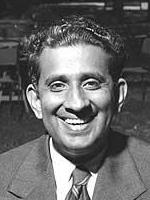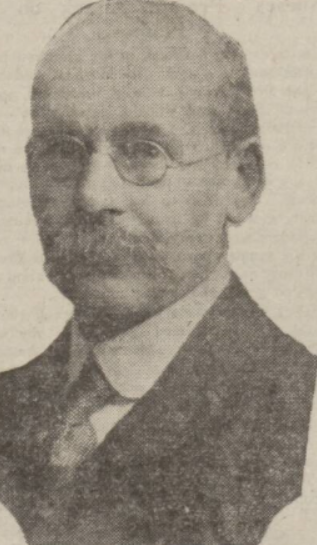Related Research Articles

In the field of comparative religion, many scholars, academics, and religious figures have looked at the relationships between Hinduism and other religions.
Eric John Sharpe was the founding Professor of Religious Studies at the University of Sydney, Australia. He was a major scholar in the phenomenology of religion, the history of modern Christian mission, and inter-religious dialogue.

Baptist Theological Seminary is a Baptist seminary located in Jagannaickpur, Church Square, Kakinada in Andhra Pradesh, India. It is affiliated with the Convention of Baptist Churches of Northern Circars.

Aiyadurai Jesudasen Appasamy was an Indian Christian theologian, and bishop of the Church of South India in Coimbatore, Tamil Nadu. He was a member of the 'Rethinking Christianity Group', and sought to reconcile Christian with Hindu philosophies. He interpreted Christianity as 'bhaktimarga'.

Madathilparampil Mammen Thomas (1916—1996) was an Indian Christian theologian, social thinker, and activist. He served as Governor of the Indian State, Nagaland (1990–1992), and as the Chairperson of the Central Committee of World Council of Churches (1968–1975).
Joshua Russell Chandran (1918–2000) was an Indian Christian theologian, who served as President of Senate of Serampore College, Bengal (1970–1), and as President of the United Theological College, Bangalore (1954–83), and was for some years a vice-chairman of the World Council of Churches (1966–68).
Stanley Jedidiah Samartha was an Indian theologian and a participant in inter-religious dialogue.

Vilakuvelil Cherian Samuel (1912–1998), called Samuel Achen was an Indian Christian philosopher, scholar, university professor, theologian, historian, polyglot and ecumenical leader. He was a priest of the Indian Orthodox Church. He was the author of many doctrinal books and papers including The Council of Chalcedon Re-Examined: Historical Theological Survey.

Richard De Smet was a Belgian Jesuit priest, and missionary in India. As Indologist he became a renowned Sankara specialist.
The Bangalore Initiative for Religious Dialogue (BIRD) is an organisation based in Bangalore, India that promotes dialog between people of different faiths, attempting to defuse tensions between religious communities such as Hindus, Christians and Muslims.
Pandipeddi Chenchiah (1886–1959), spelt also as Pandippedi Chenchiah, was a first generation indigenous convert to Christianity, a South Indian Christian theologian, a jurist, a radical thinker and part of the Rethinking Christianity in India group which worked for the Indianisation of Christianity. He published Rethinking Christianity in India, as an Indian Christian answer to the Hendrik Kraemer's The Christian Message in a Non-Christian World.

William Miller was a Scottish educationalist and Free Church of Scotland missionary to Madras. He was also a member of Madras Legislative Council for four terms—in 1893, 1895, 1899, and 1902.

John Nicol Farquhar was a Scottish educational missionary to Calcutta, and an Orientalist. He is one of the pioneers who popularised the Fulfilment theology in India that Christ is the crown of Hinduism, though, Fulfilment thesis in Bengal was built on foundation originally laid in Madras by William Miller.

Neo-Vedanta, also called Hindu modernism, neo-Hinduism, Global Hinduism and Hindu Universalism, are terms to characterize interpretations of Hinduism that developed in the 19th century. The term "Neo-Vedanta" was coined by German Indologist Paul Hacker, in a pejorative way, to distinguish modern developments from "traditional" Advaita Vedanta.
Acharya A. B. Masilamani or Abel Boanerges Masilamani (1914–1990) was a Golden Jubilee Baptist pastor and evangelist on whom parallels had been drawn comparing his ecclesiastical ministry with that of Saint Paul. The Mar Thoma Syrian Church, one of the Saint Thomas Christian Churches founded by Thomas the Apostle in the first century which holds the annual Maramon Conventions used to have Masilamani preach at its conventions since the 1970s. During one such Maramon Convention held in 1983 at Maramon, Masilamani was one of the main speaker who spoke on Christology in the presence of the two patriarchs of the Mar Thoma Church, Alexander Mar Thoma and Thomas Mar Athanius.
William Powlas Peery was a Pastor of the Evangelical Lutheran Church in America/Andhra Evangelical Lutheran Church who taught theology at ecumenical institutions, the Andhra Christian Theological College at its erstwhile location in Rajahmundry and also at the United Theological College, Bangalore both of which are affiliated to the nation's first University, the Senate of Serampore College (University), Serampore.
Nirmal Minz was an Indian Christian theologian. He was Bishop Emeritus of the Protestant North Western Gossner Evangelical Lutheran Church Society who served as bishop from 1980 through 1996.
Roger Gaikwad(born February 13, 1953) was General Secretary of the National Council of Churches in India and has been in office from 2010 through 2019.
Regunta Yesurathnam was a priest hailing from the Diocese of Medak of the Church of South India, headquartered in Medak, notable as a systematic theologian who served as a faculty member from 1974 through 2001 of the Andhra Christian Theological College, affiliated to the Senate of Serampore College (University), in Secunderabad, Telangana, India,.

G. D. Melanchthon (1934–1994) was a Silver Jubilee Priest hailing from Protestant Andhra Evangelical Lutheran Church Society who taught Religions, at United Theological College, Bangalore from 1968 till the latter half of eighties until his career was brought to an abrupt end in 1988 on being stricken with paralysis. Melanchthon used to be quite active among the academic community along with Chrysostom Arangaden, Arvind P. Nirmal and others in not only delivering scholarly talks, but also in contributing research articles and reviewing new titles.
References
- 1 2 3 4 5 6 7 8 Anderson, Gerald H. (1999). Biographical Dictionary of Christian Missions. Wm. B. Eerdmans Publishing. p. 177. ISBN 9780802846808.
- 1 2 3 4 5 6 7 8 J., Gordon Melton (2005). Encyclopedia of Protestantism. Infobase Publishing. pp. 184–185. ISBN 9780816069835.
- 1 2 3 Boston University website, Missiology section, Devanandan, Paul David (1901-1962), article by Creighton Lacy
- 1 2 3 4 5 6 "Devanandan, Paul David; History of missions: Asia". strategicnetwork.org. Retrieved 22 April 2012.
A Group Writing… A Group Work… A Symposium…; Devanandan's name appears only as editor, usually along with that of M. M. Thomas - He was born on July 9, 1901, and graduated from Nizam College in Hyderabad - K. T. Paul who first took Devanandan to America as his personal secretary. Before that, however, Devanandan had taught briefly at Jaffna College in Ceylon and received an M.A. degree from Madras University.
- ↑ Globethics website Christology by George Samuels (2013), page 74
- ↑ Devanandan, Paul David; Madathilparampil M. Thomas; Richard Warren Taylor (1966). The changing pattern of family in India. Christian Institute for the Study of Religion and Society.
- ↑ Devanandan, Paul David (1963). JStanley J. Samartha; Nalini Devanandan (eds.). I Will Lift Up Mine Eyes Unto the Hills: Sermons and Bible Studies of P. D. Devanandan. Christian Institute for the Study of Religion and Society.
- ↑ "Excerpt from Between Two Cities - Part I: Early Years - by Stanley Samartha". World Council of Churches. wcc-coe.org. Retrieved 23 April 2012.
During three years at UTC I took almost all the courses offered by Marcus Ward, the British professor who taught us theology, and Paul David Devanandan, the Indian professor of religions.
- ↑ Google Books, The Concept of Maya
- ↑ DEVANANDAN, PAUL DAVID (1952). "The Christian Attitude and Approach to Non-Christian Religions". International Review of Mission. 41 (2): 177–184. doi:10.1111/j.1758-6631.1952.tb03674.x.
- 1 2 3 4 Open Library website, Paul David Devanandan
- ↑ ABE Books website, Paul David Devanandan